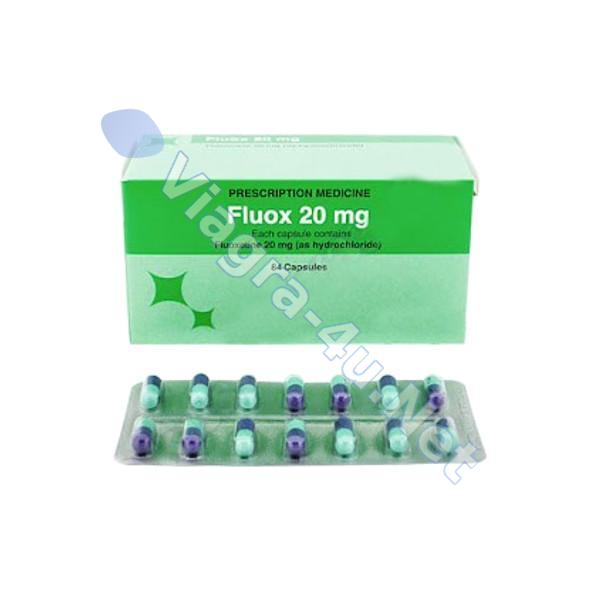


Fluoxetine is frequently used to treat major depressive disorder, obsessive-compulsive disorder, post-traumatic stress disorder, bulimia nervosa, panic disorder, premenstrual dysphoric disorder, and trichotillomania. It has also been used for cataplexy, obesity, and alcohol dependence, as well as binge eating disorder.
Fluox Fluxican (Fluoxetine), also known by trade names Prozac and Sarafem, among others, is an antidepressant of the selective serotonin reuptake inhibitor (SSRI) class. Fluoxetine is used to treat depression, obsessive-compulsive disorder, some eating disorders, and panic attacks.It has also been tried as a treatment for autism spectrum disorders with moderate success in adults. It is used to relieve the symptoms of premenstrual dysphoric disorder, including mood swings, irritability, bloating, and breast tenderness. It works by increasing the amount of serotonin, a natural substance in the brain that helps maintain mental balance.
Fluoxetine is frequently used to treat major depressive disorder, obsessive-compulsive disorder (OCD), post-traumatic stress disorder (PTSD), bulimia nervosa, panic disorder, premenstrual dysphoric disorder, and trichotillomania. It has also been used for cataplexy, obesity, and alcohol dependence, as well as binge eating disorder. It has also been tried as a treatment for autism spectrum disorders with moderate success in adults.
Take this medicine as directed. It can be taken with or without food. Do not stop taking this medicine abruptly without consulting with your doctor. The usual adult dose of Fluoxetine is between 20mg and 60mg per day.
Some common side effects reported with this medicine include:
Contraindications include prior treatment (within the past two weeks) with MAOIs such as phenelzine and tranylcypromine, due to the potential for serotonin syndrome. Its use should also be avoided in those with known hypersensitivities to fluoxetine or any of the other ingredients in the formulation used. Its use in those concurrently receiving pimozide or thioridazine is also advised against.
In some cases, use of dextromethorphan-containing cold and cough medications with fluoxetine is advised against, due to fluoxetine increasing serotonin levels, as well as the fact that fluoxetine is a cytochrome P450 2D6 inhibitor, which causes dextromethorphan to not be metabolized at a normal rate, thus increasing the risk of serotonin syndrome and other potential side effects of dextromethorphan.
Patients who are taking anticoagulants or NSAIDS must be careful when taking fluoxetine or other SSRIs, as they can sometimes increase the blood-thinning effects of these medications.
Its use should also be avoided in those receiving other serotonergic drugs such as monoamine oxidase inhibitors, tricyclic antidepressants, methamphetamine, MDMA, triptans, buspirone, serotonin-norepinephrine reuptake inhibitors and other SSRIs due to the potential for serotonin syndrome to develop as a result.
Tell your doctor if you have allergies to any other medicines, foods, preservatives or dyes. Tell your doctor if you are pregnant or plan to become pregnant. Your doctor will discuss the risks and benefits of taking this medicine during pregnancy.
You should know that fluoxetine may make you drowsy. Do not drive a car or operate machinery until you know how this medication affects you.
Remember that alcohol can add to the drowsiness caused by this medication.
Take your next dose as soon as you remember. If it is time for your next dose, skip the missed dose and go back to your regular schedule. Do not take a double dose to make up for a missed one.
Seek medical attention immediately. For non emergencies, contact your local or regional poison control center.
Store Fluox Fluxican (Fluoxetine) 20mg at room temperature between 68-77 degrees F (20-25 degrees C) away from light and moisture. Do not store the drugs in the bathroom. Keep all drugs away from reach of children and pets.